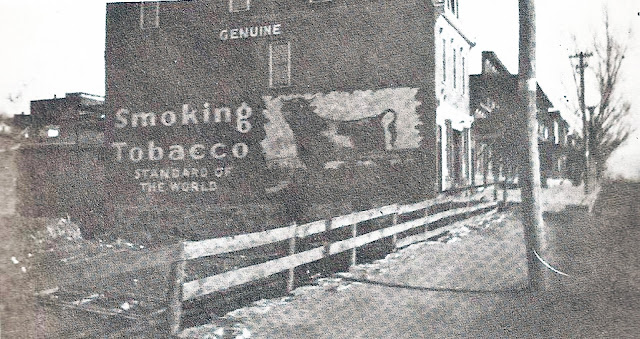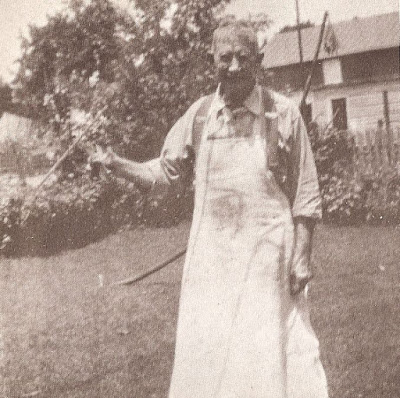With Father’s Day approaching, we reflect on the importance of our fathers. A good father is the best gift a child can receive. A father’s affection and support of our activities and our dreams help build our confidence and independence. We want to make Dad proud. Social media floods us with nostalgic images of father and son fishing or enjoying a game of catch. However, that image quickly fades after reading the numerous news stories about my grandmother’s cousin Frank and his father Walter Newman Rucker.
It was 1916. Frank was just a teenager about 15 or 16. He was one of ten children born to Walter Newman Rucker and his wife Ada Eppard. That year, Frank’s bachelor uncle Charley Eppard was living with them in Shenandoah, Virginia. Living with various relatives over the years, Charley managed to save a lot of money which he kept in a trunk. That money must have been just too tempting for young Frank Rucker.
He stole it.
STOLEN GOODS
 |
| from Harrisonburg Daily News Record 28 Mar 1916 |
According to news reports – and there were lots of them – Frank took around $600 which included 7 twenty-dollar gold coins. He was caught when A. A. Moore, a 23-year old brakeman for the railroad, was arrested on a charge of receiving money that he knew had been stolen.
The prosecution argued that Moore helped Frank and his friends Jacob Rothgeb and Martin Luther Kite spend much of the money on a trip to Harrisonburg. Moore made purchases with the gold pieces at both Toppin’s Saloon and at Frazier & Slater’s store.
The defense responded by saying Frank told Moore that he FOUND the money and there was “more where that came from.” Moore emphasized that he gained nothing from the money since the purchases of a suitcase and two suits of clothing were for Frank and that he gave all the change back to Frank as well. The prosecution maintained that any prudent man could look at the circumstances and just KNOW that the money had been stolen.
AND THE JURY SAYS …
The trial ended in a hung jury, so the judge set another court date.
 |
| from Daily News Record 7 Apr 1916 |
News reporters covered the case like it was the trial of the century. Spectators filled the court room.
 |
| Daily News Record 6 Jun 1916 |
Among the material witnesses to be called were Frank’s buddies
Jacob Rothgeb and Martin Luther Kite. Both failed to show up. Kite was soon
arrested in Maryland where supposedly he had gone to obtain work. As for
Rothgeb, the counsel for the defense claimed Frank’s father Walter Rucker had
threatened him and that is why he failed to appear.
Walter’s behavior was key to the defense counsel’s strategy. He brought in witness after witness who testified that both Walter and Frank had bad reputations when it came to truthfulness.
Impeaching the prosecution’s witnesses must have worked because the second trial ended in acquittal for A. A. Moore.
 |
| headlines - Daily News Record 10 Jun 1916 |
Walter must not have been too happy about the verdict. He was quoted in the newspaper saying he wanted “to put the stripes on Moore.”
REFORM SCHOOL
For the theft, Frank was sent to the Laural Industrial School, a juvenile correctional center north of Richmond, instead of prison. Surely Walter was glad of that.
 |
| photo by Calder Loth 2021 at DHR.virginia.gov |
The Laurel Industrial School was a privately owned and administered institution established in 1892 as a model boys’ reformatory. With its mission to reform the treatment of juvenile offenders, the school housed about 300 boys. They attended classes and worked either in the shops or on the farm. Today the main building is on the National Register of Historic Places and the Virginia Landmarks Register.
A SAD END
 |
| Harrisonburg Daily News Record 26 Nov 1935 |
In 1935 they moved to Sparrows Point in Baltimore County, Maryland, where Frank had obtained a job with Bethlehem Steel Corporation. Having grown up in a railroad town, having been raised by a father and uncles who worked for the railroad, and having earned his own living as a brakeman for the railroad, it seems unthinkable that Frank would have stepped between rails and been hit by a railroad car.
NATURE OR NURTURE
I can’t help wondering what forces were at work when Frank took his uncle’s money. Was it just an act of a teenager lacking good sense? Did he think his uncle would not notice? Or was he just a bad seed? Was Walter just as culpable for wishing harm to the others? Or was he merely a dad standing by his boy? Unfortunately, Frank Rucker died too soon leaving no children behind to tell a different tale or to wish him Happy Father's Day.
Amy Johnson Crow continues to challenge genealogy bloggers and non-bloggers alike to think about our ancestors and share a story or photo about them. The challenge is “52 Ancestors in 52 Weeks.”
Wendy
© 2021, Wendy Mathias. All rights reserved.













